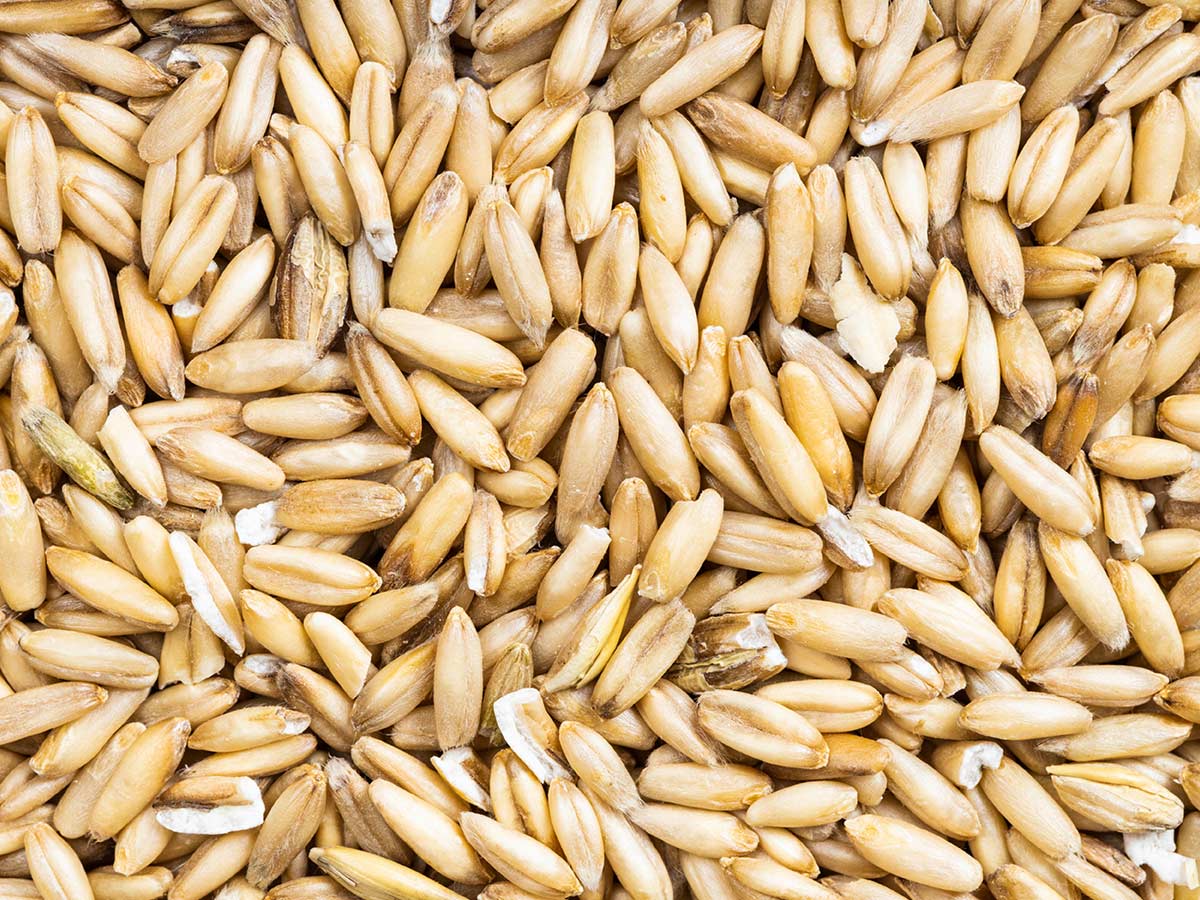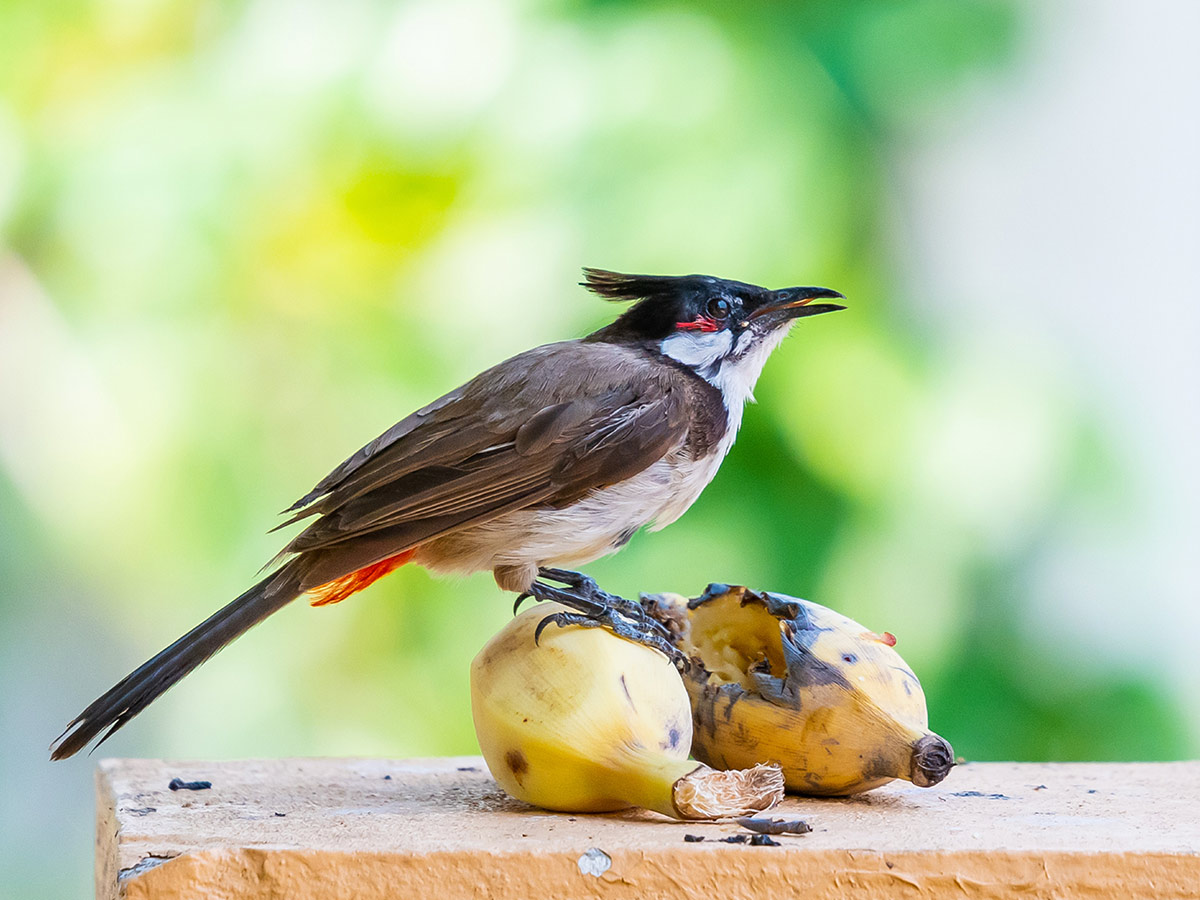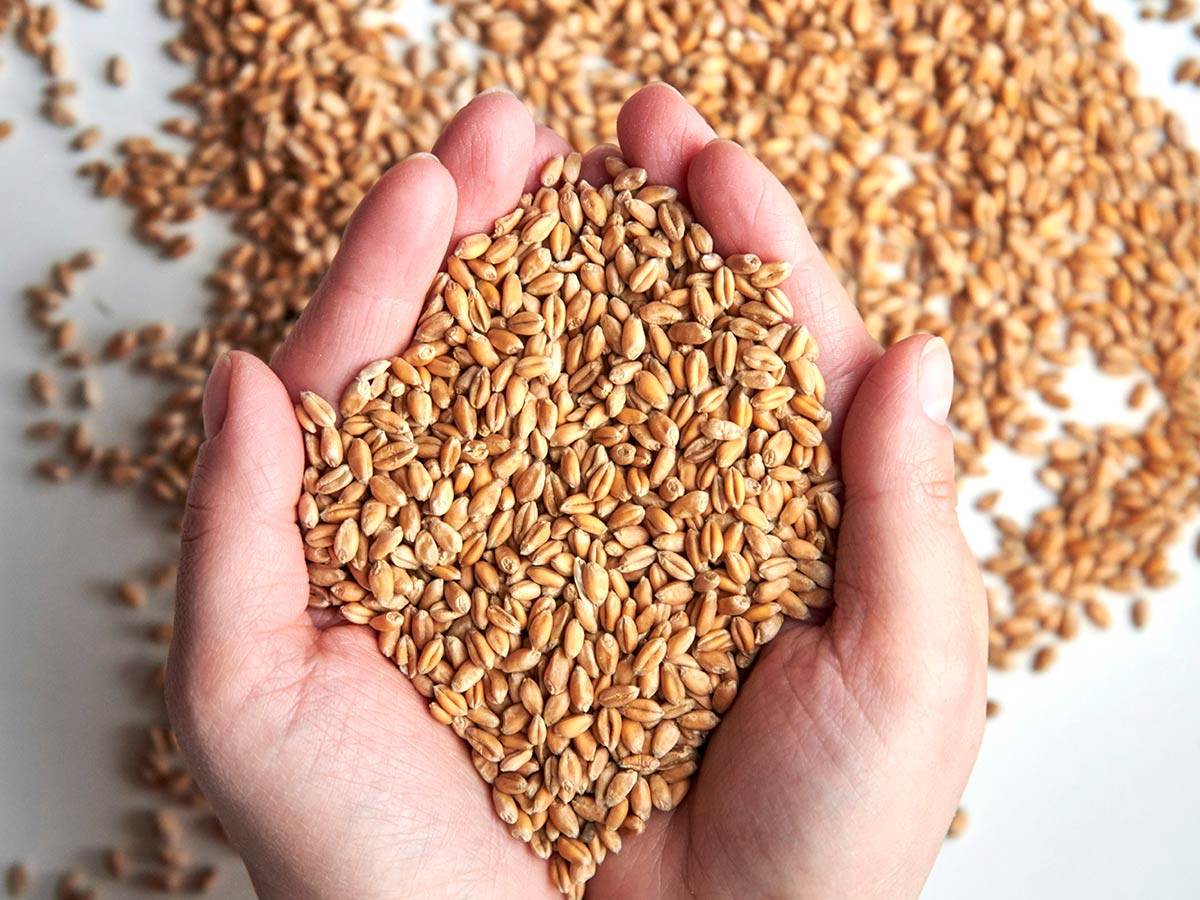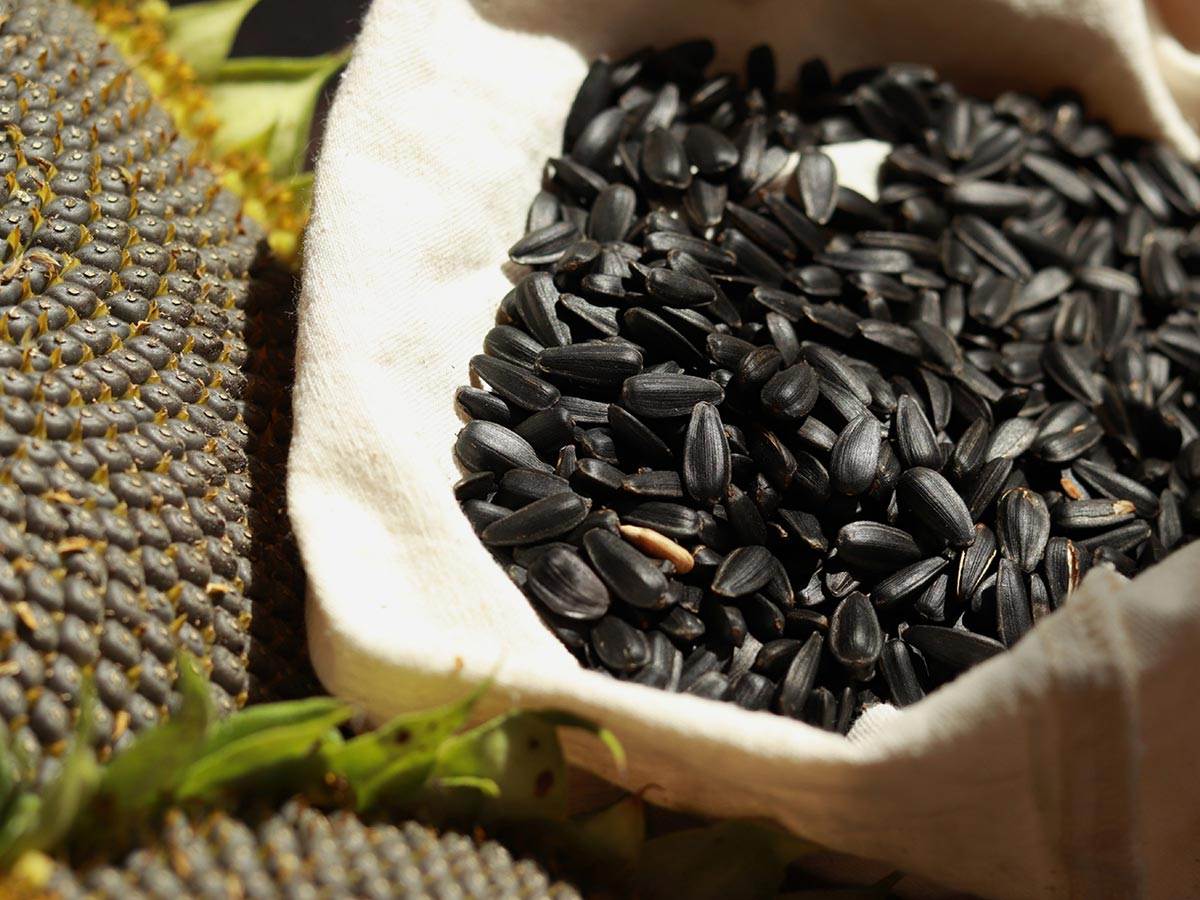Summer days are the times we create our fondest memories Ė poolside mocktails, fruit bowls, radiant tan skin, and never ending pool games. But what about our avian friends? While summertime is a happy time of the year, it...
Summer days are the times we create our fondest memories Ė poolside mocktails, fruit bowls, radiant tan skin, and never ending pool games. But what about our avian friends?
While summertime is a happy time of the year, it is the most strenuous season for birds. Why? Itís one of the driest seasons with droughts in common.
With bird baths on their way to extinction, birds face an excruciating time finding water sources as we rapidly destroy their habitats.
Being an avid bird lover and enthusiast, Iím sure you find it difficult to keep up with ingredients that can keep our feathered friends hydrated. Well, worry no more because watermelon has come to your rescue!
Are Watermelons Safe for Avian Consumption?
Before we dive into the juicy details of serving watermelon to our feathered friends, letís address the question thatís been on your mind:
Are watermelons safe for avian consumption? The short answer is yes, with a little caveat.
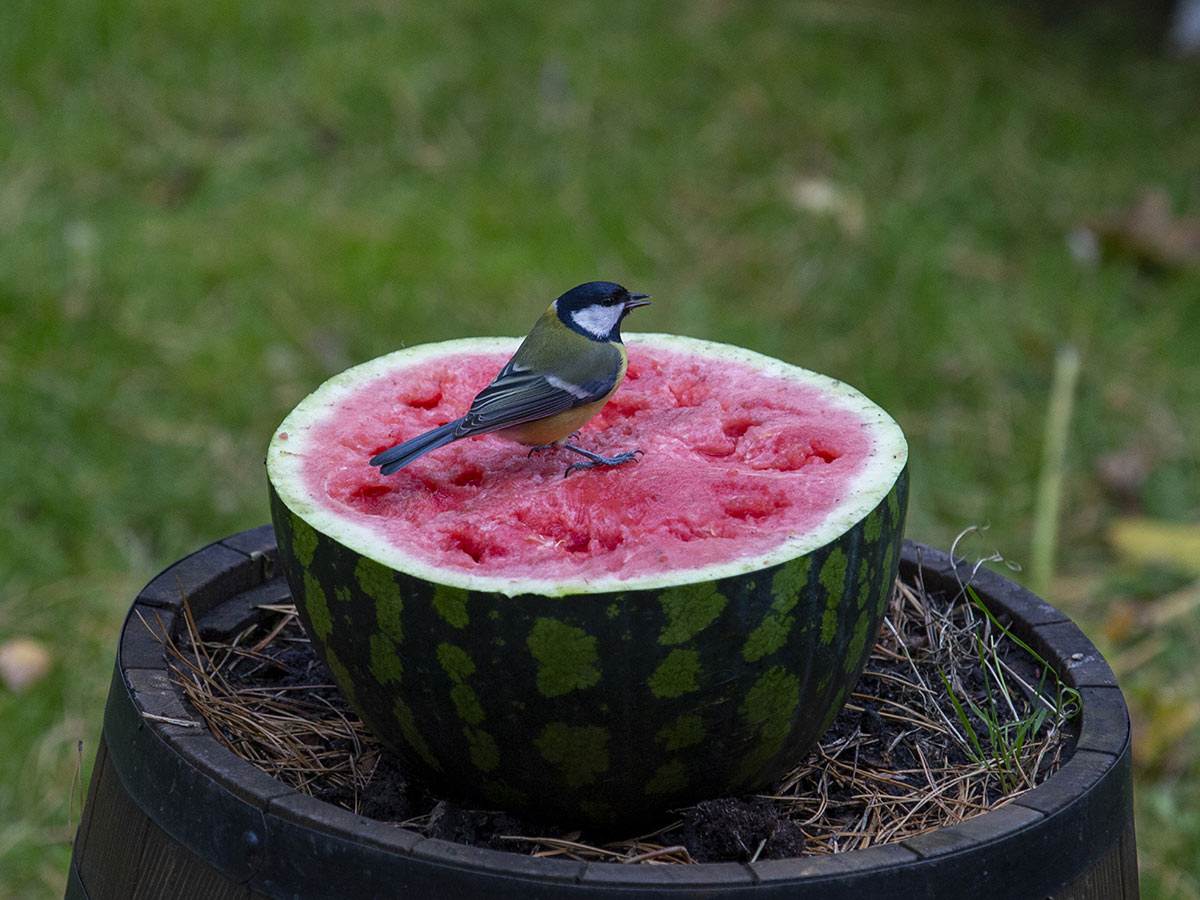
Watermelon flesh is generally safe and even beneficial for many bird species. Itís packed with water, vitamins, and minerals, making it a refreshing and nutritious summer snack. However, thereís a catch Ė the rind.
The rind of a watermelon contains a certain chemical called cucurbitacin. This chemical is perfectly fine for humans but can upset a birdís delicate digestive system.
So, when serving watermelon to your avian pals, be sure to remove the rind entirely to ensure their safety.
What Are the Benefits of Watermelons for Birds?
Now, letís continue our journey into the nutritional wonders of watermelon for our feathered friends, exploring the seeds, flesh, and rind, and uncovering the rich array of minerals, nutrients, and vitamins they each contain.
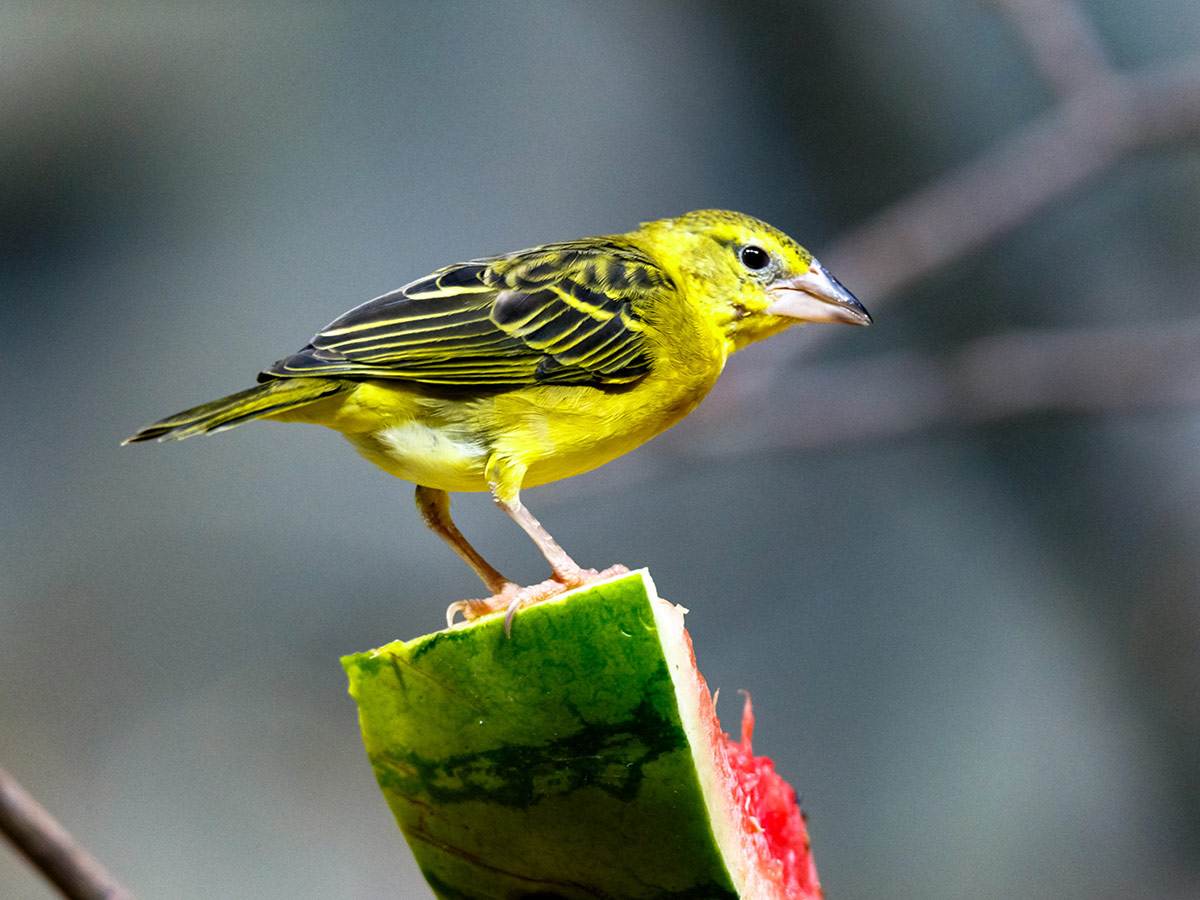
1. Watermelon Seeds: A Tiny Nutritional Powerhouse
Watermelon seeds may be small, but they pack a nutritional punch. Watermelon seeds contain essential minerals like magnesium and iron. Magnesium is crucial for maintaining overall bird health, contributing to bone strength and muscle function.
Iron, on the other hand, helps transport oxygen throughout the avian body, ensuring proper oxygenation of tissues.
Niacin, or vitamin B3, is found in watermelon seeds and is important for various bodily functions. It supports proper cellular metabolism and helps maintain healthy skin.†
Folate, another vitamin present in these seeds, plays a vital role in DNA synthesis and repair, essential for the overall well-being of our feathered friends.
Itís important to note that watermelon seeds provide all these benefits without the presence of cucurbitacin, which can be tough on bird digestion if consumed in large amounts.
So, while watermelon seeds may seem small, they offer a substantial nutritional boost for your avian companions.
Incorporating them into their diet in moderation can contribute to their overall health, ensuring they enjoy the best of what watermelon has to offer while maintaining a well-rounded and balanced feeding routine.
2. Watermelon Flesh: A Juicy Hydration Boost
Now, letís turn our attention to the succulent flesh of watermelon, which provides a natural source of hydration for our feathered friends, especially during hot summer days.
Watermelonís high water content is its most prominent feature. This attribute is a true blessing during scorching weather, as it helps our avian companions stay properly hydrated. Adequate hydration is essential for their overall health and well-being.
Within the juicy flesh of watermelon lies an essential mineralópotassium. Potassium plays a pivotal role in maintaining proper muscle function and electrolyte balance in birds. It helps ensure their muscles function smoothly, enabling them to stay active and agile.
Watermelon flesh is not just hydrating; itís also rich in vitamins. Vitamin A, found abundantly in this part of the fruit, contributes to healthy vision and is crucial for maintaining good eyesight.†
Additionally, vitamin C, another prominent component, supports a strong immune system, helping our avian friends fend off illnesses.
So, the juicy flesh of watermelon offers more than just a refreshing tasteóit provides essential hydration and a host of vital nutrients, including potassium, vitamin A, and vitamin C.†
These elements contribute to the overall health and well-being of our feathered friends, making watermelon a delightful and nutritious addition to their diet, especially during the warm summer months.
3. Watermelon Rind: Surprisingly Nutritious
The often-overlooked watermelon rind has its own set of benefits. Itís an unexpected source of dietary fiber, promoting digestive health among our avian companions.
This dietary fiber is crucial for promoting healthy digestion among our feathered friends. It can help prevent digestive issues and ensure that their digestive systems run smoothly.
The rind of watermelon contains citrulline, an amino acid that may have potential benefits for birds. Citrulline is known to play a role in improving circulation, which can be particularly beneficial for their overall health.
Surprisingly, the watermelon rind holds small amounts of vitamins, including B5 (pantothenic acid) and B6 (pyridoxine). These vitamins contribute to overall avian well-being, supporting various bodily functions and maintaining health.
Incorporating watermelon, with its seeds, flesh, and rind, into your bird-feeding routine can offer a diverse array of benefits. From essential minerals and vitamins to hydration and digestive support, this fruit can be a delightful and nutritious addition to their diet.†
However, always remember that moderation is key, as watermelon should complement their regular bird food rather than replace it.†
By striking this balance, you can ensure your feathered friends enjoy the best of what watermelon has to offer while maintaining a well-rounded and healthy diet.
How to Serve Watermelon to Birds?
Now that weíve explored the incredible benefits of watermelon, letís discuss how to serve it to our feathered friends while keeping their health and safety in mind.
Think of it as setting a special table for a fancy dinner party. When it comes to watermelon and other juicy fruits, consider using a separate feeder.
This simple step helps keep things fresh and prevents any potential mess or bacterial growth in their regular feeders. Itís like treating them to a gourmet meal!
While watermelon is a fantastic summer treat, it should be served in moderation.
Birds appreciate bite-sized portions that are easy to handle. So, when youíre dishing out watermelon, think ďsmall and manageable.Ē Itís all about ensuring they can enjoy their treat without going overboard on indulgence.
Imagine serving up appetizers at a fancy soirťe Ė just the right size for them to savor.
By following these easy-going guidelines, you can share the summertime joy of watermelon with your avian pals, making mealtime a breeze while keeping their well-being in check.
Itís all about creating a bird-friendly feast that leaves them chirping with happiness!
What Are the Hydrating Alternative Fruits to Watermelon?
While watermelon is a fantastic summer treat for our feathered friends, itís not the only option to help them stay refreshed and hydrated.
Here are some other hydrating fruits that can be equally delightful for your avian companions:
1. Melons
Melons come in various varieties, including cantaloupe and honeydew, and they share a similar hydrating quality with watermelon.
These juicy fruits are not only thirst-quenching but also rich in essential vitamins and minerals, making them a nutritious choice for your avian pals.
2. Papaya
Papaya is not only a hydrating fruit but also a great source of vitamins A and C, which promote healthy vision and boost the immune system.
Birds often enjoy the sweet and tangy flavor of papaya, making it a delightful addition to their diet. Interested to learn more? Read about papaya and papaya seeds here.
3. Grapes
Grapes are not only hydrating but also a convenient snack for birds. They have been featured in our ďCan Birds Eat This?Ē series, where we examined their suitability for avian consumption.
However, remember to serve them in small, halved portions to prevent choking hazards.
4. Goji Berries
Another fruit featured in our series, Goji Berries, offers a unique burst of flavor and hydration for your feathered friends. These berries are known for their antioxidant properties and can be a great addition to their diet in moderation.
5. Cucumber
Cucumber slices are another hydrating option for your avian companions. While technically a fruit, cucumbers are often mistaken for vegetables.
They are incredibly water-rich, providing a refreshing crunch that birds appreciate during hot weather. Cucumber slices can be a cool and hydrating addition to their feeding routine.
These hydrating alternatives to watermelon provide variety in flavor and nutrients, ensuring that your avian companions have a well-rounded and refreshing diet during the summer months.
Frequently Asked Questions
Letís answer a few common (and uncanny questions) birders can have over the diet of watermelons. In no strict order, mind you!
Can all birds eat watermelon?
Watermelon is generally safe for most bird species, but itís essential to consider the size of the fruit and the birdís ability to consume it comfortably. Smaller birds may struggle with larger watermelon pieces.
Can birds eat watermelon seeds?
While small amounts of watermelon seeds are generally safe, itís a good practice to remove them to prevent any potential digestive issues, especially in smaller bird species.
How often can I give watermelon to my pet bird?
Pet birds can enjoy watermelon as an occasional treat during the summer months. Offer it in moderation, ensuring it complements their regular diet.
Is watermelon safe for baby birds?
Itís generally safe to offer small, mashed watermelon pieces to baby birds as part of their diet. However, consult with an avian expert or veterinarian for specific dietary recommendations.
What other fruits can I provide to birds for hydration?
Besides watermelon, you can offer fruits like melons, papaya, grapes, goji berries, and cucumbers to help keep your avian companions hydrated and refreshed.
Can watermelon replace a birdís regular diet?
No, watermelon should not replace a birdís regular diet. It should be treated as an occasional treat or supplement to their standard bird food.
Final Remarks
In a nutshell, watermelon is a fantastic summer treat for your avian companions. Its juicy flesh, seeds, and surprisingly nutritious rind offer hydration and essential nutrients, making it a great addition to their diet.
Remember, moderation is key. Serve watermelon in small portions and use a separate feeder for juicy fruits to keep it fresh. Also, donít forget that other hydrating fruits like melons, papaya, grapes, goji berries, and cucumbers can be just as refreshing.
So, go ahead and share the joy of watermelon with your feathered friends this summer while maintaining a well-rounded and healthy diet. Theyíll appreciate the treat!





